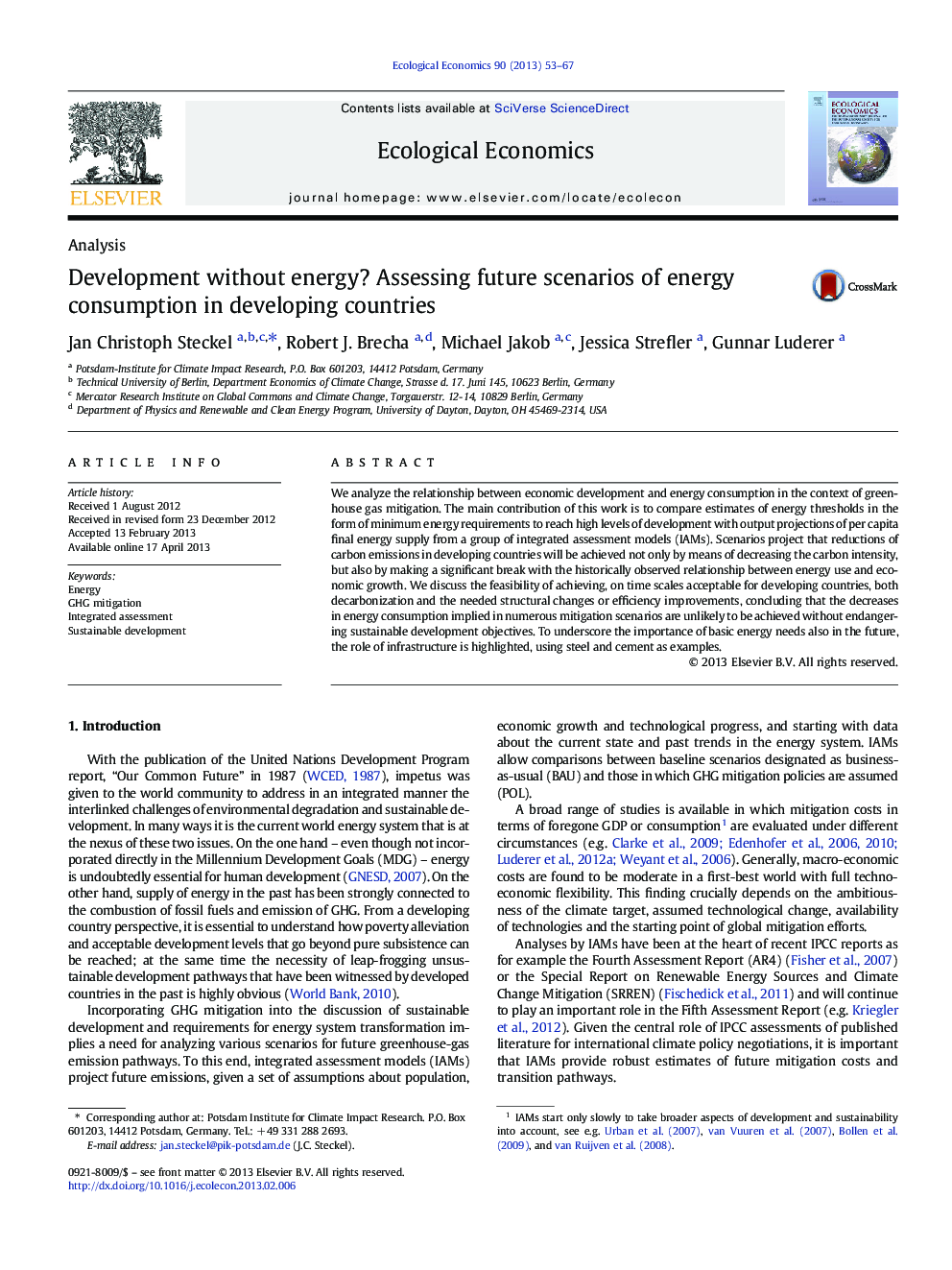| Article ID | Journal | Published Year | Pages | File Type |
|---|---|---|---|---|
| 6769305 | Renewable Energy | 2013 | 15 Pages |
Abstract
We analyze the relationship between economic development and energy consumption in the context of greenhouse gas mitigation. The main contribution of this work is to compare estimates of energy thresholds in the form of minimum energy requirements to reach high levels of development with output projections of per capita final energy supply from a group of integrated assessment models (IAMs). Scenarios project that reductions of carbon emissions in developing countries will be achieved not only by means of decreasing the carbon intensity, but also by making a significant break with the historically observed relationship between energy use and economic growth. We discuss the feasibility of achieving, on time scales acceptable for developing countries, both decarbonization and the needed structural changes or efficiency improvements, concluding that the decreases in energy consumption implied in numerous mitigation scenarios are unlikely to be achieved without endangering sustainable development objectives. To underscore the importance of basic energy needs also in the future, the role of infrastructure is highlighted, using steel and cement as examples.
Keywords
Related Topics
Physical Sciences and Engineering
Energy
Renewable Energy, Sustainability and the Environment
Authors
Antonio Colmenar-Santos, Oscar Monzón-Alejandro, David Borge-Diez, Manuel Castro-Gil,
